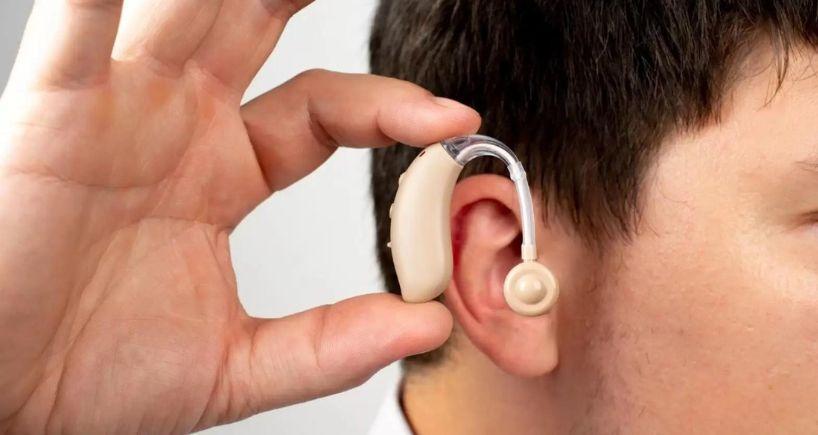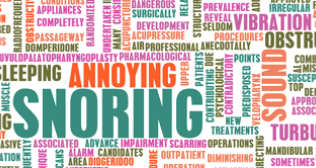
Restoring Hearing and Speech with Cochlear Implants
In our country India, for every 1000 births, 3-4 children are born deaf and many more become deaf in the first 2 to 4 years of their life because of childhood infections. Did you know? Cochlear implants are electronic devices that lessen hearing loss. Cochlear implants don’t restore a person’s hearing, but they can improve one's ability to understand speech and hear other sounds.
In this blog we will delve into types of cochlear implants, how cochlear implants work and restoration of hearing and speech with cochlear implants:
What are the types of cochlear implants?
Cochlear implant types vary based on the site of the external sound processor. External sound processors refer to one of the pieces of equipment utilized in cochlear implants. The processor may be:
- Behind the person’s ear.
- Adhered to his/her attires.
- On a person’s scalp.
How do cochlear implants work?
By understanding how cochlear implants work, may aid to know more about how a person hears. Hearing begins with sound that travels from a person’s outer ear and their middle ear to their inner ear. A person’s inner ear consists of cochlea, which bolsters hearing.
- A portion of a person’s cochlea comprises very tiny hair cells. These hair cells connect with a person’s hearing (auditory) nerve. Sound traveling from person's outer ear to person's inner ear hits his/her cochlea, sparking an electrical signal that one's hearing nerve carries to one's brain’s temporal lobe. A person’s temporal lobe perceives the electrical signal as sound that his/her brain interprets as speech, music or other noise.
- Cochlear implants essentially bypass a person’s inner ear structure, making a new pathway for sounds to make their way to his/her brain. It works like this:
- A person wears a sound processer that sorts the sounds coming into his/her outer ear.
- The sound processor transmits signals to a transmitter attached to a person’s scalp with a magnet.
- The transmitter transforms the signals into electric impulses that it sends to electrodes placed in a person’s cochlea.
- The electrodes in a person’s cochlea gather the impulses, sending them on to hearing nerves.
- The hearing nerves let person's brain know sounds are coming in.
How to restore hearing and speech with cochlear implants?
Nowadays, with the universal newborn hearing screening programs, hearing can be tested from day one of birth with the aid of a simple screening test known as OAE- OtoAcoustic Emissions. This test helps healthcare professionals know whether a kid will be able to hear or not. If the test is not conclusive, a repeat test is done post an ENT consult and may also entail an advanced test known as BERA (brain stem evoked response audiometry). For instance, a kid is found to be suffering from critical to profound sensorineural hearing loss where hearing aids do not offer any advantages. In that case, certain radiological tests like a CT scan and MRI of the ear are done to see if the cochlea (the major organ of hearing) and the auditory/cochlear nerve are present. They can then undergo cochlear implant surgery. The earlier the age of implantation, the better the results for the child's speech and language acquisition. Starting early and ensuring proper intervention is crucial, as maximum brain development, known as brain plasticity, occurs within the first two years of a child's life. A child who undergoes an implant as early as 9 months up to 18 months can develop normal speech and language, go to a normal school & receive formal education like any other child.
Presently, in India, the average age of cochlear implants is approximately 4 to 5 years. Due to this delay in implantation, majority of children cannot attend formal school education. With the latest criteria of WHO of the rule of 1, 3 and 6 months, that is, detection at 1- month, complete diagnosis at 3 months and intervention at 6 months with hearing aid trial and therapy (and undergoing a bilateral cochlear implant surgery as early as 9 months of age) enables these kids to not only restore their hearing but also have normal speech and language acquisition like any other normal kid in the society.
The message is extremely clear: do not waste time in alternate modes of therapy if your child has been diagnosed with serious to profound sensorineural hearing loss.
In a nutshell, cochlear implants refer to electronic devices that alleviate hearing loss. They don’t restore hearing. Instead, they improve a person’s ability to understand speech and hear more sounds. Many people who get cochlear implants reap benefit by having audiologic therapy that aids them relearn how to hear.
Popular Searches :
Hospitals: Cancer Hospital in Delhi | Best Heart Hospital in Delhi | Hospital in Amritsar | Hospital in Ludhiana | Hospitals in Mohali | Hospital in Faridabad | Hospitals in Gurgaon | Best Hospital in Jaipur | Hospitals in Greater Noida | Hospitals in Noida | Best Kidney Hospital in Kolkata | Best Hospital in Kolkata | Hospitals in Rajajinagar Bangalore | Hospitals in Richmond Road Bangalore | Hospitals in Nagarbhavi Bangalore | Hospital in Kalyan West | Hospitals in Mulund | Best Hospital in India | | Cardiology Hospital in India | Best Cancer Hospital in India | Best Cardiology Hospital in India | Best Oncology Hospital In India | Best Cancer Hospital in Delhi | Best Liver Transplant Hospital in India
Doctors: Dr. Rana Patir | Dr. Rajesh Benny | Dr. Rahul Bhargava | Dr. Jayant Arora | Dr. Anoop Misra | Dr. Manu Tiwari | Dr. Praveer Agarwal | Dr. Arup Ratan Dutta | Dr. Meenakshi Ahuja | Dr. Anoop Jhurani | Dr. Shivaji Basu | Dr. Subhash Jangid | Dr. Atul Mathur | Dr. Gurinder Bedi | Dr. Monika Wadhawan | Dr. Debasis Datta | Dr. Shrinivas Narayan | Dr. Praveen Gupta | Dr. Nitin Jha | Dr. Raghu Nagaraj | Dr. Ashok Seth | Dr. Sandeep Vaishya | Dr. Atul Mishra | Dr. Z S Meharwal | Dr. Ajay Bhalla | Dr. Atul Kumar Mittal | Dr. Arvind Kumar Khurana | Dr. Narayan Hulse | Dr. Samir Parikh | Dr. Amit Javed | Dr. Narayan Banerjee | Dr. Bimlesh Dhar Pandey | Dr. Arghya Chattopadhyay | Dr. G.R. Vijay Kumar | Dr Ashok Gupta | Dr. Gourdas Choudhuri | Dr. Sushrut Singh | Dr. N.C. Krishnamani | Dr. Atampreet Singh | Dr. Vivek Jawali | Dr. Sanjeev Gulati | Dr. Amite Pankaj Aggarwal | Dr. Ajay Kaul | Dr. Sunita Varma | Dr. Manoj Kumar Goel | Dr. R Muralidharan | Dr. Sushmita Roychowdhury | Dr. T.S. MAHANT | Dr. UDIPTA RAY | Dr. Aparna Jaswal | Dr. Ravul Jindal | Dr. Savyasachi Saxena | Dr. Ajay Kumar Kriplani | Dr. Nitesh Rohatgi | Dr. Anupam Jindal |
Specialties: Heart Lung Transplant | Orthopedic | Cardiology Interventional | Obstetrics & Gynaecology | Onco Radiation | Neurosurgery | Interventional Cardiology | Gastroenterologist in Jaipur | Neuro Physician | Gynecologist in Kolkata | Best Neurologist in India | Liver Transfer



















